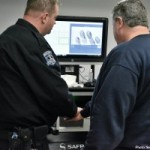Nova Scotia is embarking on a project that will make it easier for businesses to hire the skilled workers they need once the requirements for six more trades are streamlined across the Atlantic provinces.
Nova Scotia, Newfoundland and Labrador, Prince Edward Island and New Brunswick are working to adopt common entry and completion requirements, trade hours, technical training and exams for automotive service technician, truck and transport mechanic, heavy duty equipment technician, industrial mechanic (millwright), boilermaker and sprinkler fitter apprentices.
Harmonization of trades helps employers access skilled apprentices in the region without dealing with mismatched program requirements.
“It’s important that we make it easier for apprentices to get the training they need and that businesses have ready access to a skilled and available workforce,” said Labour and Advanced Education Minister Labi Kousoulis. “This is part of government’s effort to build a skilled and diverse workforce that can help businesses take advantage of opportunities for growth and create more jobs for young Nova Scotians.”
The work is expected to be completed in spring 2019. While hiring employers will benefit, this approach also helps apprentices train more easily across the Atlantic region.
Similar harmonization efforts for ten other trades are already complete, including the cook trade.
“After working in the kitchen for some time, I was able to register for the new Level One harmonized training,” said Chris Parsons, cook apprentice with Northwood’s Bedford campus. “Knowing that I can now work in any Atlantic province and not have to retake my training is a huge benefit. Although I plan to stay and work in Nova Scotia, harmonizing the trade makes it possible for me to broaden my experience, while learning the necessary skills I need to progress towards certification.”
The four Atlantic provinces and Manitoba are also working on the development of a common IT system for apprenticeship. The new system is being cost-shared by the five provinces and the Government of Canada at a total cost of $10 million. It will replace aging infrastructure and improve online services.
Once complete, employers and their apprentices will be able to register more easily with the Nova Scotia Apprenticeship Agency, log and track on-the-job hours and apply for technical training and associated examinations.
“As a small and very busy employer, the new IT system will allow an enhanced level of interaction between me and my apprentices that will help me better plan and support their progress,” said Paula Webber, general manager of PMC Roofing in Debert.
Nova Scotia-based company ABM Integrated Solutions will develop the new system, which is expected to be available to Nova Scotians by late 2018.
Together, the Atlantic Apprenticeship Harmonization Project and the new IT system will cost about $19.4 million, which will be cost-shared by the provinces and the federal government. Nova Scotia’s funding contribution to both projects is $2.3 million.
Source: Release


